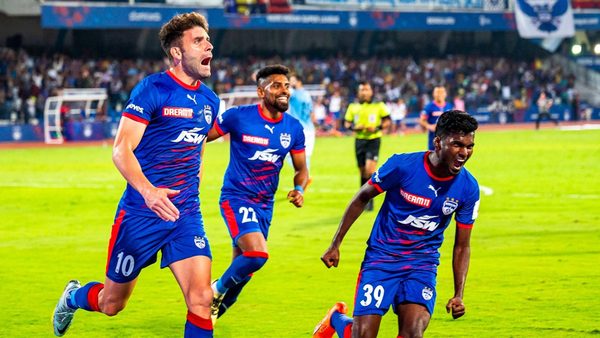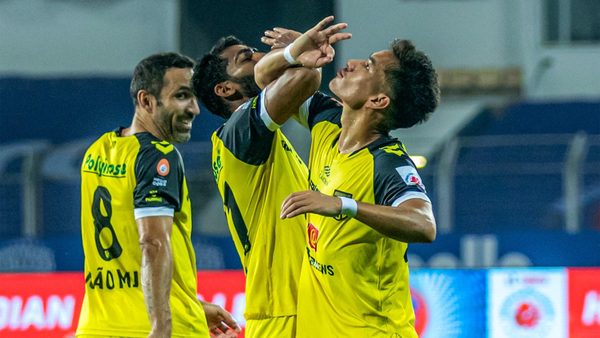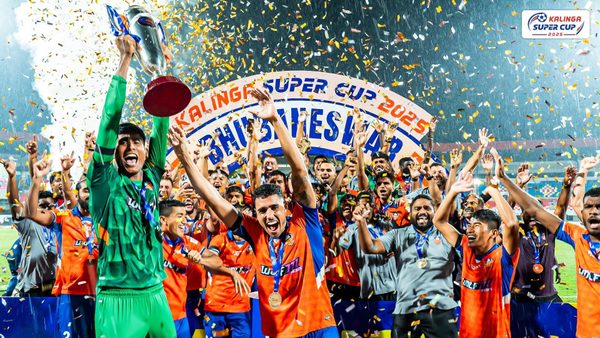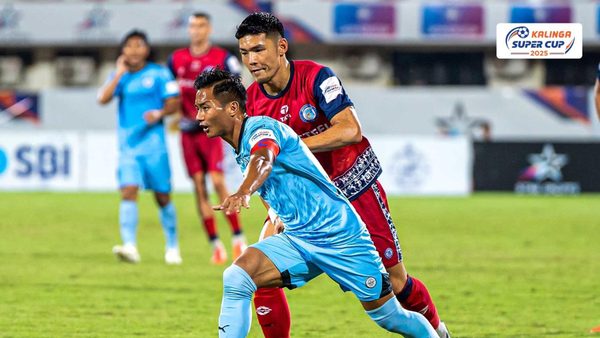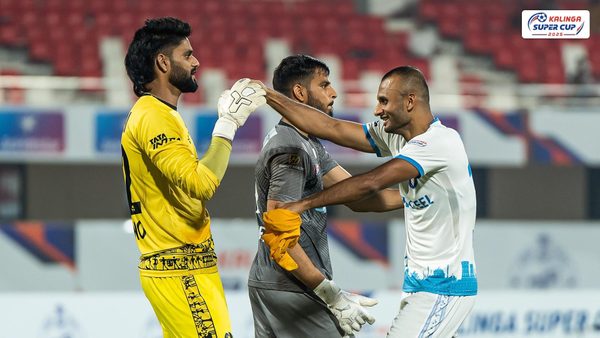Extra Time with Leeza Mangaldas
Across the world, at every level, football referees have it hard. Whether it’s a neighbourhood match in the park or the Champions League, to be a referee is to be constantly at the receiving end of scrutiny and insults.

Follow pitch-side reporter Leeza Mangaldas as she takes you behind the scenes this Hero ISL season. New posts every week exclusively on indiansuperleague.com.
Match Week 9: What it’s really like to be a referee
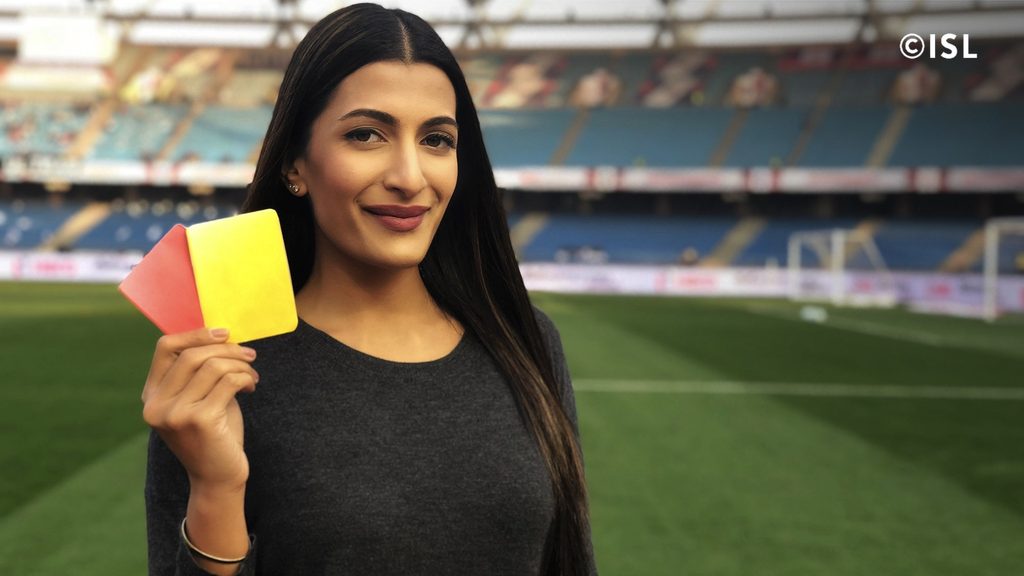
Across the world, at every level, football referees have it hard. Whether it’s a neighbourhood match in the park or the Champions League, to be a referee is to be constantly at the receiving end of scrutiny and insults.
The referees officiating at the Hero ISL fixtures have it no different. They’re the target of vitriol from charged up fans, managers, and players. But as a touch line reporter, I’ve seen first-hand what a challenging job it is to be a match official, and I wanted to share that with you this week.
Highly demanding - physically and mentally
For a moment, just imagine yourself having to make your most critical professional decisions while also having to run over 10 kilometres in 90 minutes, having to concentrate and analyse the frenetic action around you with multiple people shouting at you and questioning your judgement the whole time.

Believe me, it’s no easy feat.
A referee has to make very important, and often very tricky decisions very quickly while also experiencing the physical exertion of running fast, while simultaneously having to cope with pressure and aggression from 22 other strong, sweaty, impassioned men on the pitch, plus the dozens more tempers, emotions, and opinions flaring in the dugouts.
Referees have to be not just highly focused and thick-skinned, but also exceptionally fit and resilient. It’s extremely demanding, both physically and mentally, and they have to pass rigorous tests in order to acquire and retain their jobs.
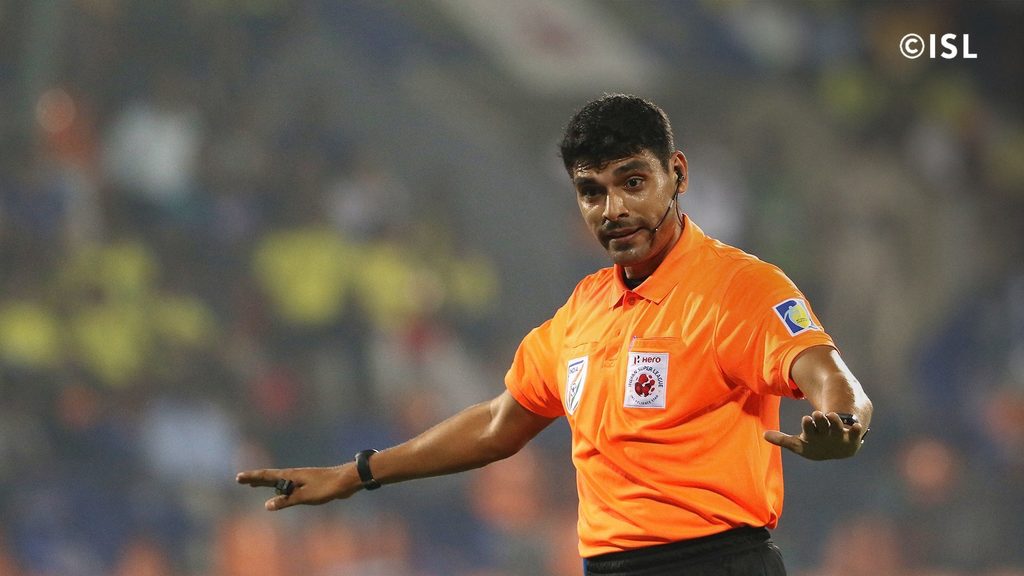
Damned if you do, damned if you don’t
No one complains when a referee makes a dubious decision that favours their own team - but if a decision benefits the opposition, then regardless of whether the decision is right or wrong, they are going to question it. So, a referee has to be resolute about his split-second decisions, shutting out the seeds of doubt players or managers may try to sow.
But refs also have to be extremely careful not to let their judgement be affected by their past experiences: for example, just because a player is known to dive doesn’t mean he can never genuinely be on the receiving end of a bad foul. Every match is a new match and has to be considered afresh.
Referees may have the power to alter the course of a match - but tremendous responsibility and pressure come with the power they’re entrusted with. And theirs is an almost entirely thankless task.
Indian referees deserve a chance
Quite like the standard of Indian football itself, the standard of refereeing here too will improve only as more and more opportunities arise for them to ply their trade at the highest level.
Just as there are now more Indian players on the pitch for every team, more Indians anchoring pre-match and post-match shows, and more Indians manning the crews, so also this year there are more Indian referees in the Hero ISL.
It’s worth keeping in mind that we’ll never be able to cultivate world class local talent in any department if we don’t train, hire, and invest in local talent.
Also, just because something is foreign, it isn’t always necessarily better.
 With the match officials at NEU v ATK on Friday
With the match officials at NEU v ATK on Friday Quality training is key
That said, of course there is immense value in learning from those that have exposure and experience with the highest standards globally.
Alongside the Referee, the two Assistant Referees and the Fourth Official, every ISL match is assigned a Referee Assessor whose job it is to advise the referees and review all decisions in a match.
Several of the Match Commissioners (whose responsibility is to ensure the match goes smoothly, inspecting safety, security, fairness, and pitch standard, and submitting detailed post-match reports) have passed the AFC Match Commissioner’s test as well. The ISL, too, regularly brings in referee coaches who have officiated at the highest level internationally to attend matches, assess the standard of refereeing, and provide the refs with detailed feedback.
In fact, currently former Premier League referee Paul Taylor is here doing just that.
The role of technology
Now, just as I started looking more closely at what it takes to be a referee this past week, VAR or Video Assistant Referees were being trialled for the first time in England. And, interestingly, the feedback around VAR hasn’t been entirely positive.
Football is not cricket, where replays can establish the absolute truth of angles and contact. Football is fast and highly physical, and the line between what is defined as football and what is defined as a foul is often very thin, even elusive.
For all the talk about how technology would drastically benefit the accuracy of refereeing, it is estimated that VAR will at best make just a 2% reduction in referee errors. Critics also maintain that the recurrent stoppage time involved in consulting the replays badly affects the flow of the game.
Whether the machine can really do the job better than the man thus to me seems a question still tilted in favour of the man.

We are all human
All that said, of course referees sometimes get decisions wrong. Just like sometimes even the best strikers don’t find the back of the net, and sometimes even top goalkeepers concede sitters, and sometimes even experienced managers struggle to make a team work.
Referees like players, managers, team owners, and fans are after all, people. Even the sharpest mind and body, with the highest commitment to integrity is subject to human error.
But isn’t that what makes football so stirring to watch? The bodies, the minds, the emotions, the egos, the spirits on the pitch - they’re all real, and they can all make mistakes. Just like you and me.
Connect with me on Instagram or Twitter at @leezamangaldas.














